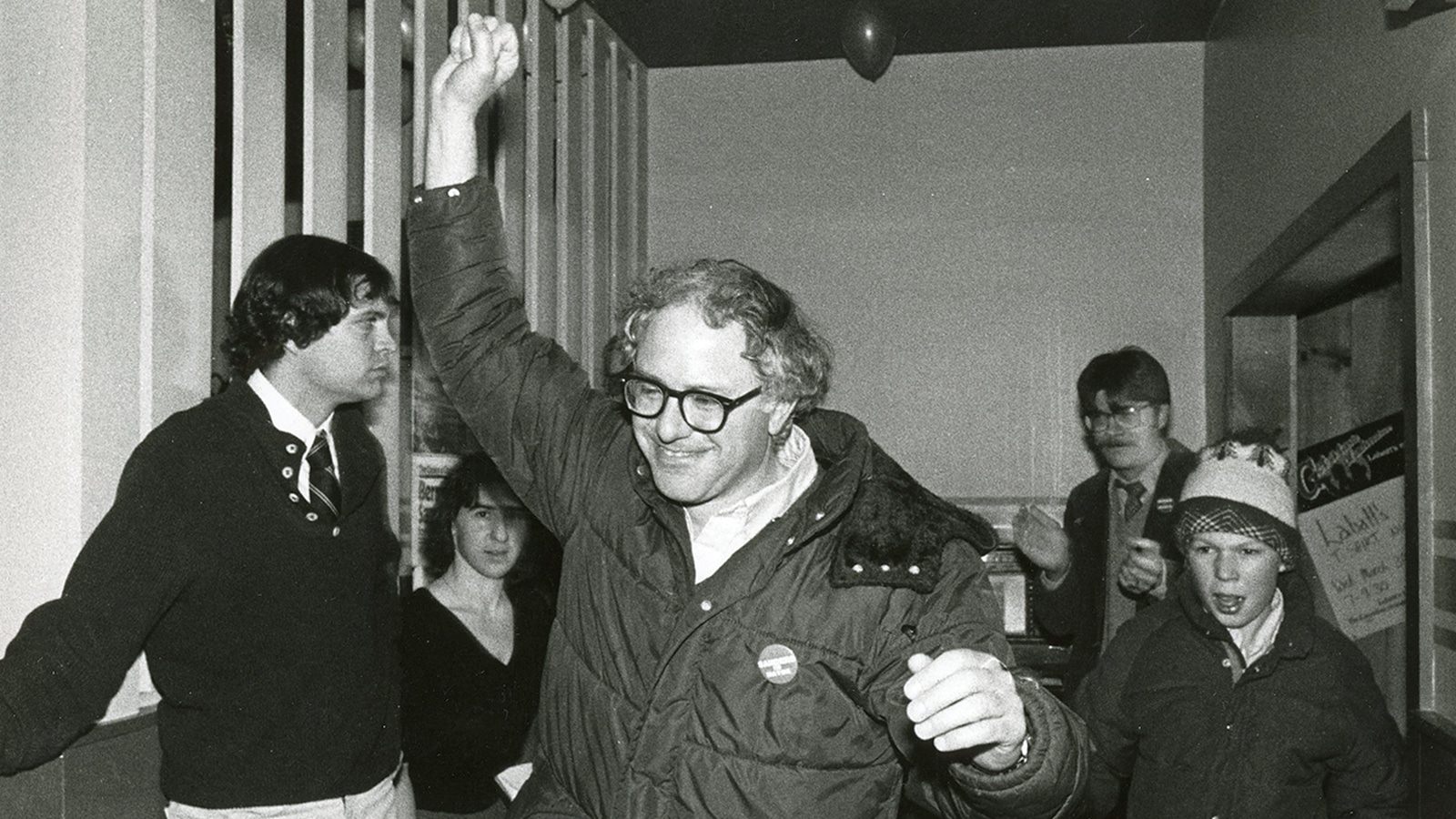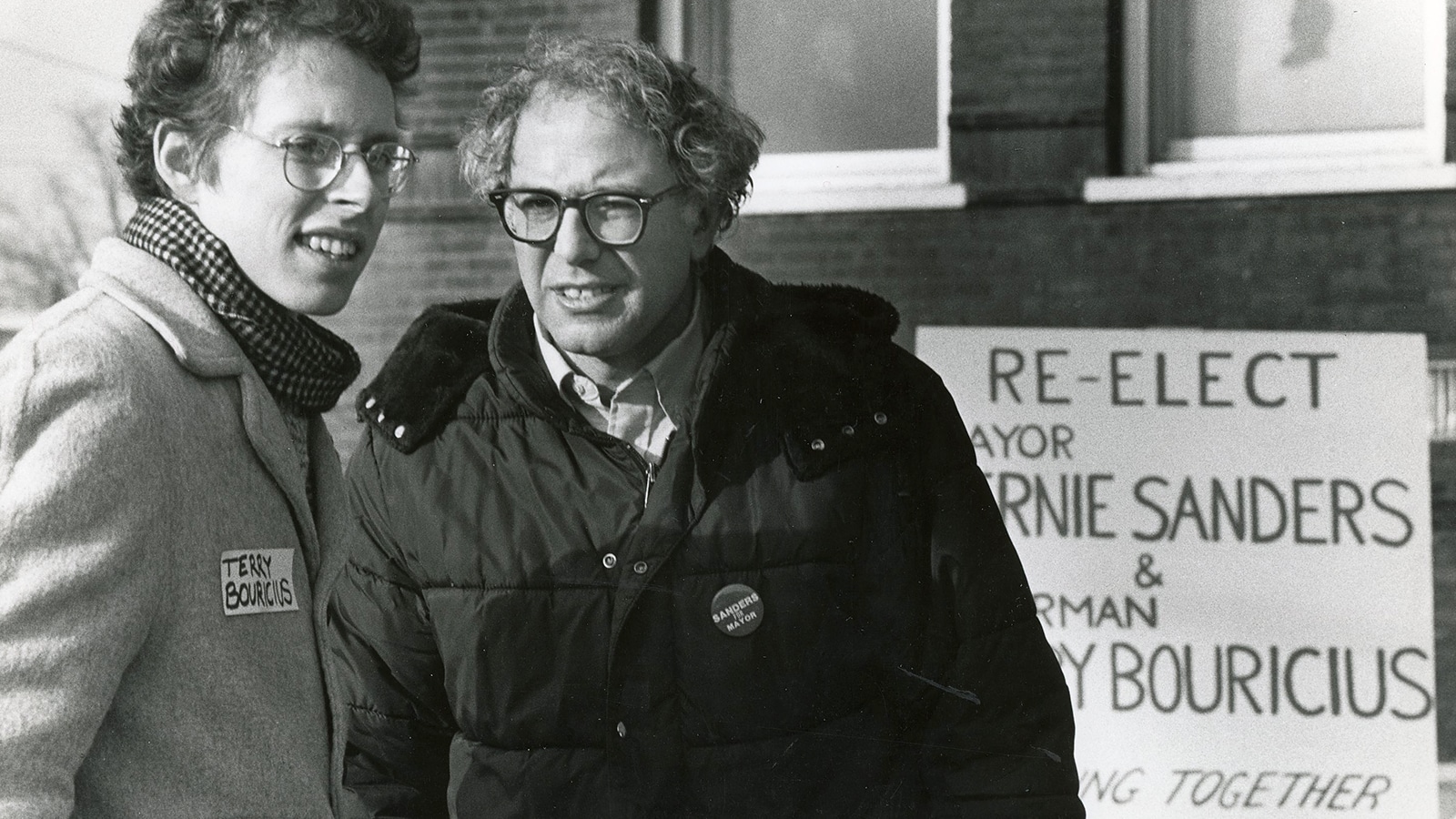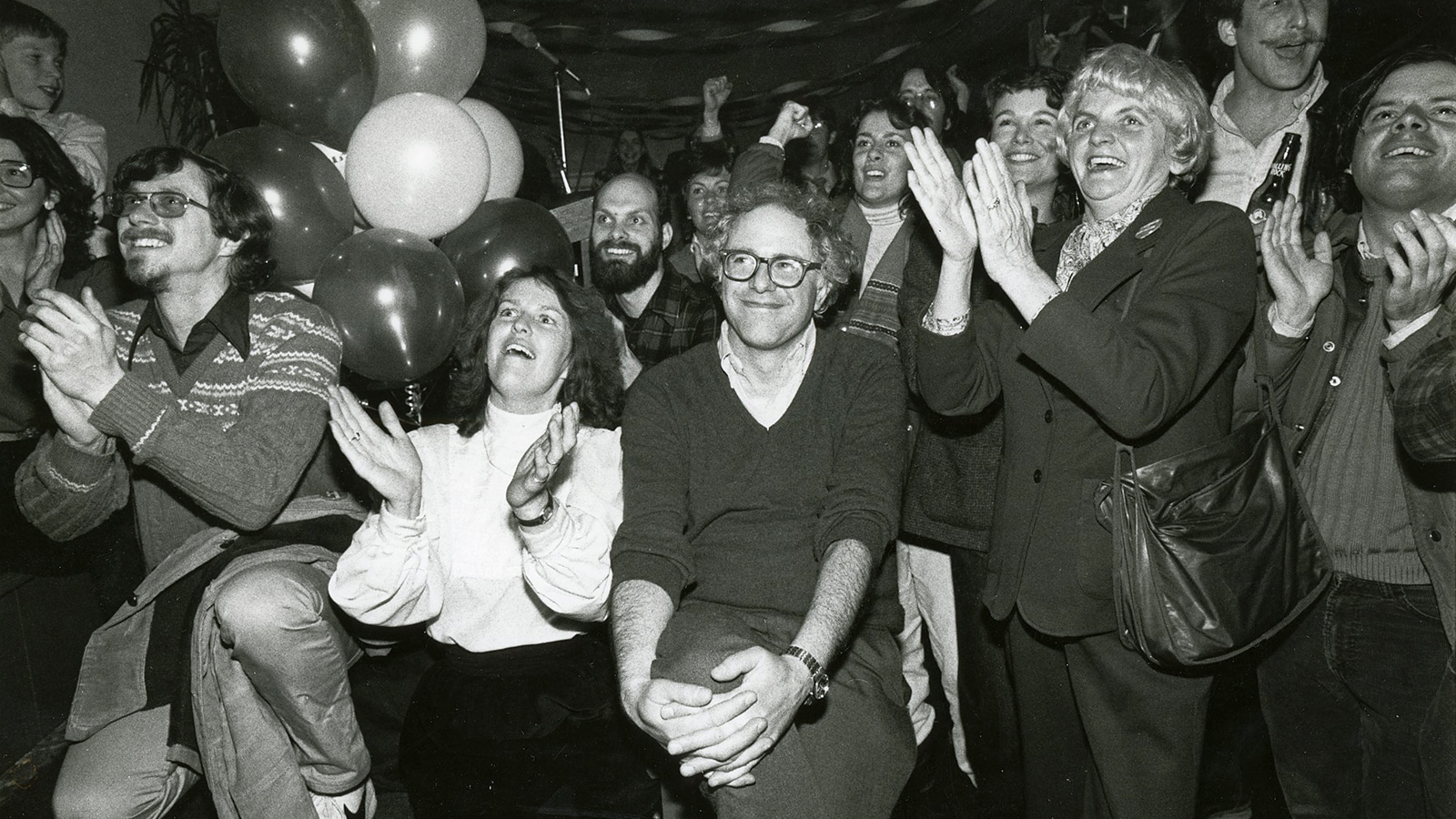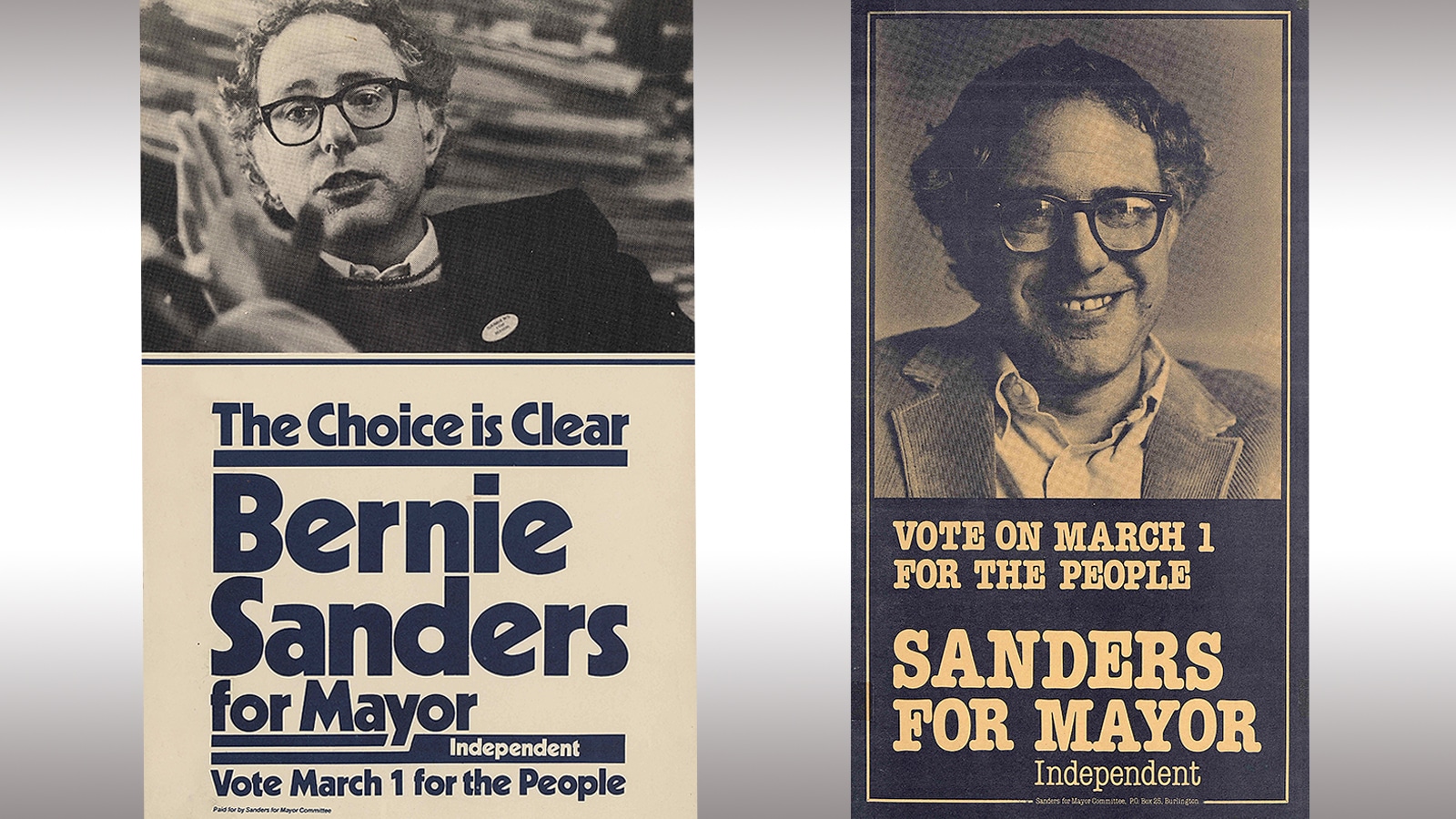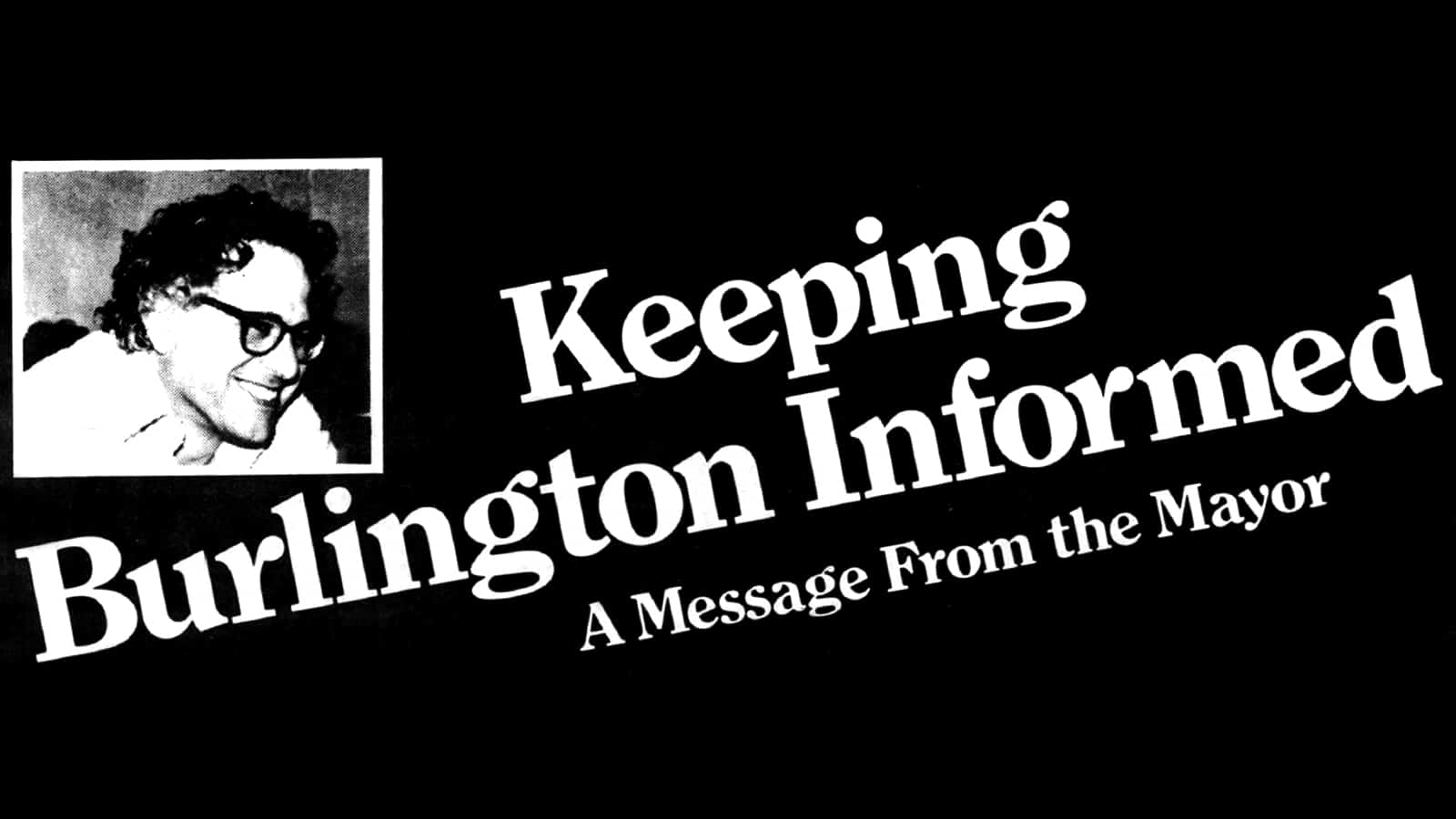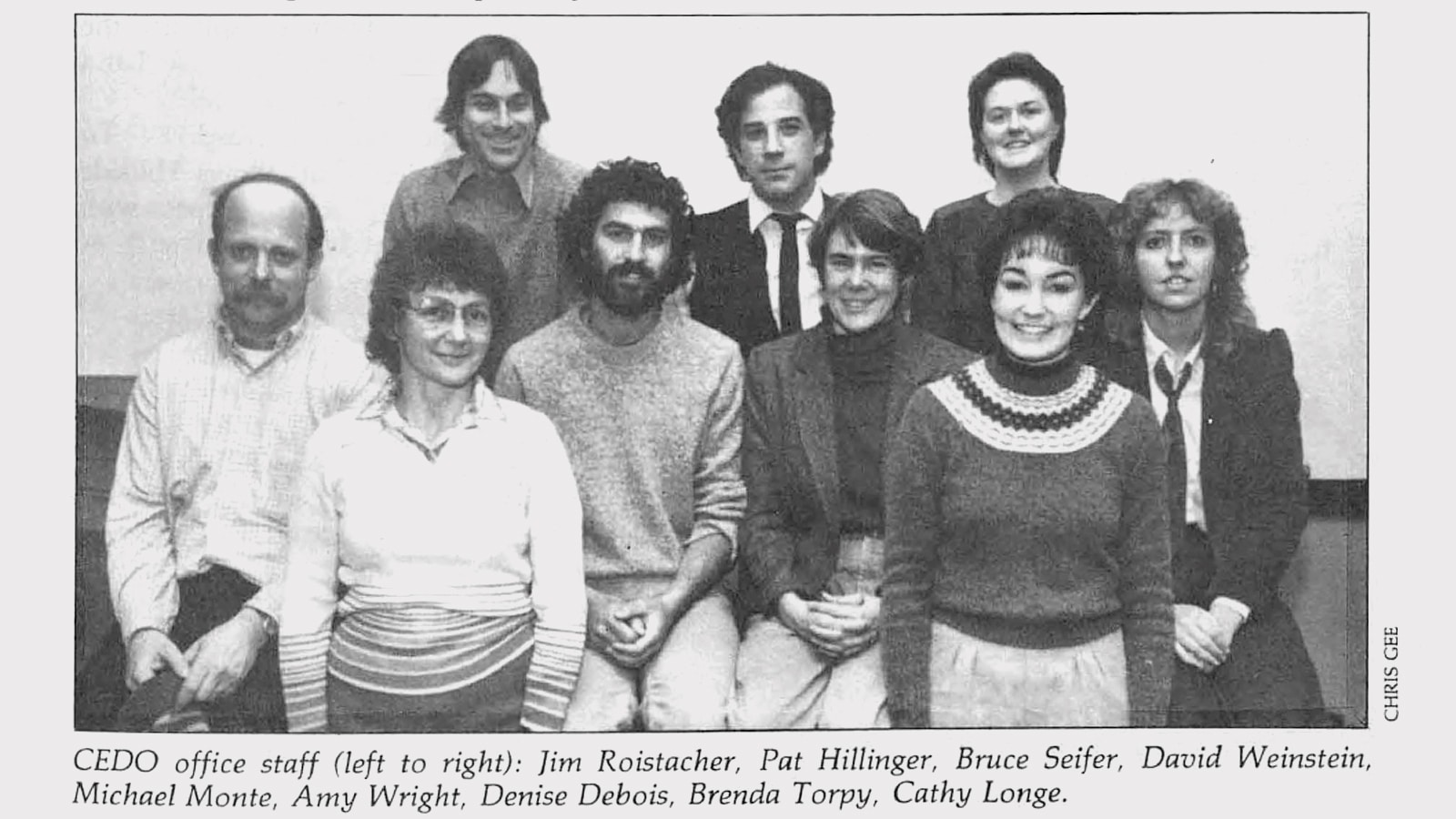“Bernie, Bernie, Bernie,” the ecstatic campaign workers chanted. It was almost too much for 41-year-old Sanders. ”It’s not me, Bernie, who won,” he insisted. ”It’s you and thousands of other people in the city.”[1]
On March 1, 1983, Independent candidate Bernie Sanders won his second Burlington mayoral race with 52.12% of the vote in a three-way race with a record turnout of 13,392 voters. The win proved that Mayor Sanders had already won the trust of citizens who saw the direct results of his leadership making an impact on their lives during his first term.
“We thought he was extremely liberal — that’s a little bit understated. He was much more outspoken about being a socialist at the time. So we all thought that this was, I thought that this was all a flash in the pan.” said Chip Wadhams, a Republican attorney who was also a member of the Board of Alderman.[2]
When Bernie won his first Mayoral election in 1981, he had two supporters on the Board of Alderman. An 81-year-old former Democrat the party did not want to run again, and a 20-something Citizen’s Party candidate. The eleven other members strongly opposed him at every turn. They would not let him appoint most of the usual mayoral appointees, going even so far as to fire his secretary. Their actions were so obstructive that two of his volunteer appointees – Jane and Doreen – were able to persuade community leaders to sign on to a “Citizens for Fair Play” letter which volunteers distributed throughout the city. At the next election, five of the seven board members up for re-election were replaced by members of the so-called progressive coalition. That gave Bernie veto power and seriously changed the power dynamic in the city.
And today, even the early critics, like Wadhams, say Sanders was a surprisingly effective executive.[2]
Then-city attorney McNeil agrees with that. He says Sanders turned out to be a budget hawk who paid close attention to the nuts and bolts of the city’s administration and infrastructure. “It is a bit discordant,” McNeil said. “And it took a while to get used to the fact that what some people called a flaming radical was very, very attentive to the bottom line and the nuts and bolts.”[2]
On December 3, 1982, Bernie stood on the steps of Burlington City Hall and announced that he would seek re-election. On January 22, 1983, the Citizen Party voted unanimously to endorse him, although he ran as an independent. He spent $33,000 on his campaign.
In the Fall of 1982, after his second win, Bernie attended a New York City conference where he discussed his improbable victories; his advocacy for the working class; and his distaste for the two-party system, bankers, the media, and “the establishment.”[3]
“When the election results came in, it was a three-way race….When the results came in, to our amazement, I got 52 percent of the vote, and the Democrat got 30, the Republican got 18….It doesn’t mean to say that 52 percent of the electorate in Burlington, VT, are Socialist. They’re not. The word “socialism” is a very big word. But at least 52 percent of the people said, “Hey, Sanders and the people he’s working with are doing a pretty good job. If this is socialism, we’d like a couple more years of it.”[3]
“The majority of the people in the city of Burlington are not Socialist. What they are is intelligent, sensible people. There are many conservative people, good Republicans who voted for us and you know why, because we are now running — as any city government should run — an honest, efficient government.
“Now we make certain value judgments which people disagree with. One of our value judgments is that we are going to pay the workers of the city of Burlington a decent wage. And I remember once in a hysterical meeting, we announced that we were giving, when inflation was — I forgot what is was — but we announced a 9 percent increase to our city workers and the Republicans on the board were going nuts. I mean they just, this was much too much. Because they’re embarrassed, because their corporations were only offering 5 or 6 or something like that. These are value judgments, which many people don’t like.
“But what people do like is running an efficient government. We’ve introduced centralized purchasing. Low and behold, when I was first elected, we had a meeting of all the department heads and we said to them, “Okay, how much are you paying for gasoline for your vehicles?” We have the police, the fire, the streets. One guy says, “Buck ten a gallon, buck fifteen a gallon,” and then the fire chief says very sheepishly says, “dollar thirty a gallon.” They were going out on their own, they were not using anything. Since that time, our system treasurer has gotten six towns together and we’re now getting gas at the very cheapest price.”
Prior to his Mayoral wins, Bernie paints this picture of the city’s politics:
“What they had neatly done is divided the city, the Democrats had controlled it, now and then they would have a caucus, although most of the time not, candidates would run unopposed here. The Republicans had the wealthy ward up there, they ran unopposed and the city government went on and on. It turned out, though, that people were a little more bitter and a little bit more angry and a little more wanting of change than the establishment had believed.”
 Back to Timeline
Back to Timeline
